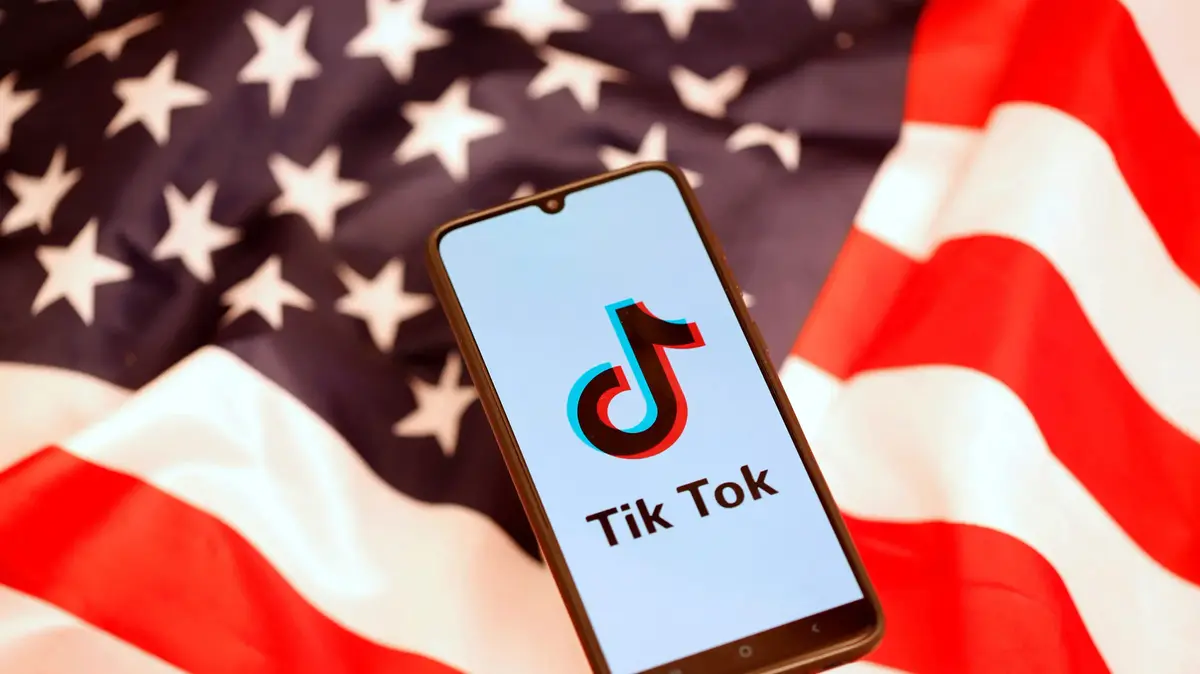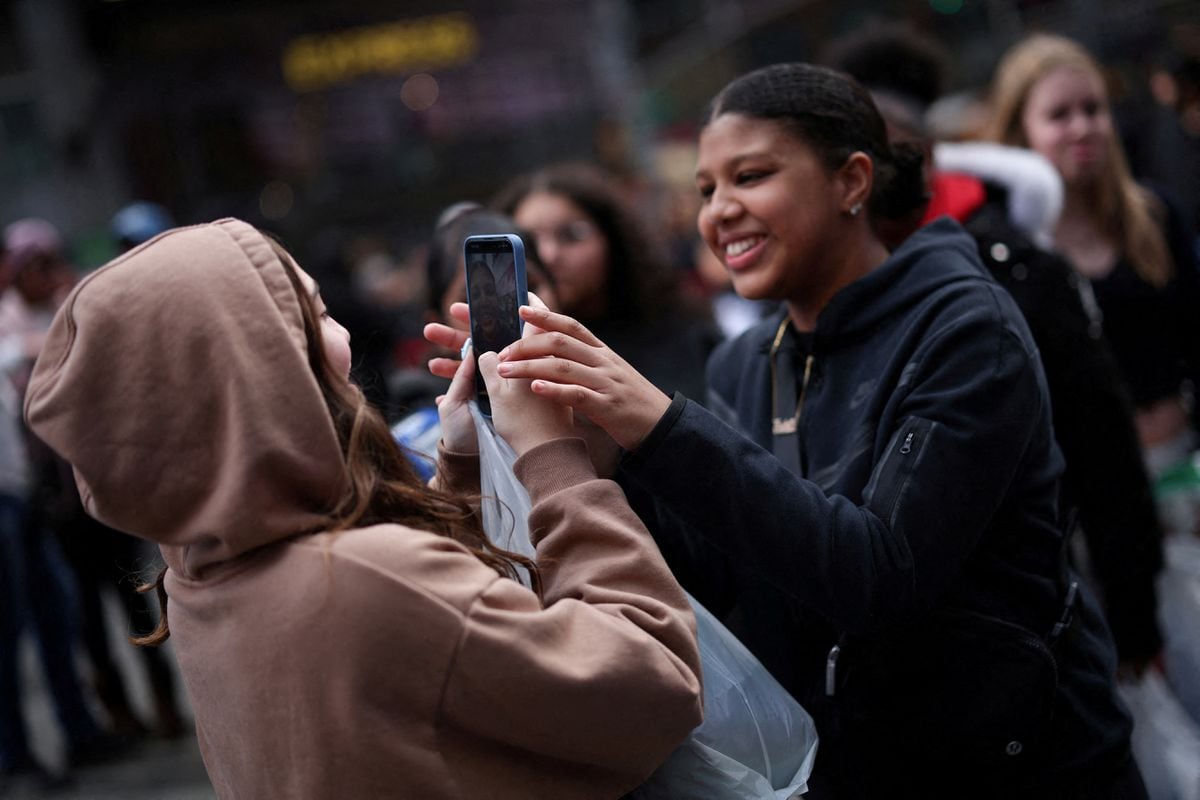In March 2020, when we were all locked at home due to the covid-19 pandemic, one application triumphed over all others.
TikTok was the most downloaded worldwide, with a total of 115.2 million downloads, that is, 98.4% more than in the same month of the previous year.
More data to understand the dimension of the phenomenon: the Ditrendia Report indicates that in Spain TikTok is opened an average of seven times a day with an average daily use time of 43 minutes.
It receives an average of 17,000 million visits per month, which is about 566 million visits per day.
More information
13-year-old children, mature to use social networks alone?
"Mom, Dad, I want to be a 'streamer'"
Why is it so popular with boys and girls?
Because of its content configuration.
Dr. Jessica Ortega Barón, from the Cyberpsychology Research Group of the International University of La Rioja (UNIR) specifies a little more: “Videos adapted to their tastes, opinions and previous searches are shown to the user.
This makes the user only see what they are interested in, thus increasing their use.
On the other hand, these
online
environments
contain content feeding algorithms that help to massively disseminate the videos. "
Of course, the type of content and the short duration (less than a minute) of the videos also influences: “TikTok allows the realization of viral
challenges
or
challenges
that are highly popular among teenagers.
They refer to actions that are proposed to users (dances, songs, challenges, jokes ...) ”.
They record themselves accepting the challenge and broadcast it to other users.
This system helps them gain a large audience
(likes,
comments or followers) in a short time.
And let's remember that
likes
are important in adolescence because it helps them feel accepted.
The study
The impact of screens in the family life of Empantallados and GAD3
,
affirms that 85% of parents know that for adolescents being on social networks is important to feel recognized and valued.
Thus seen, as an application of challenges and dances of just a few seconds, it does not seem to be dangerous or to worry about.
But if the parents have not found out from their adolescent that he has an account, but rather from third parties, there is an indication that there is a problem: “It is possible that the children understand that in order to use the application it is better to do it hidden before the possible refusal of their parents ”, assures Ortega Barón.
And he continues: “It is worrying that minors use TikTok in secret, because when faced with a possible problem, the shame of admitting their behavior and the fear of being scolded can make them not tell what is happening to them, thus limiting the protection that we can give them. give".
On the other hand, "to prohibit its use in adolescence is to put doors to the field, since they find a way to use it without the knowledge of their parents through their device when they are alone, or from that of friends", concludes the expert in Cyberpsychology from UNIR.
The dangers of TikTok
The dangerousness or not of the application depends on the use that is made of it, obviously.
Although parents are primarily concerned with three.
María José Abad, Empantallados content coordinator, tells it: “The relationship with strangers, possible cyberbullying and access to inappropriate content.
Also the overexposure of your image or the loss of time ”.
These three questions are going to have to do with what kids post: “Your sons and daughters on TikTok may be looking for validation;
And it is proven that the more 'provocative' the video they upload, the more popular they will be.
This can be the origin of many dangers… And the reason why many parents prefer that their children are not in this social network ”.
It is common for kids not to configure the privacy of this application.
"This exposes many minors to adult pedophiles who contact them posing as adolescents in order to gain their trust and thus obtain photos or videos of a sexual nature, is what is called online grooming," says Jessica Ortega Barón.
The other danger it can pose is accepting dangerous challenges.
The expert explains that these are "videos that can put people's lives or physical or psychological integrity at risk, or where their privacy can be exposed."
For example, the so-called “
Desk Challenge
” which consists of “students hanging their desk from a hanger and climbing on it, often causing very bulky falls”.
It also refers to the
#Coronaviruschallenge,
which consisted of licking a public toilet during the pandemic ... All this means that users are exposed to a large number of videos that are sometimes not appropriate, due to their degrading, violent or uncivil nature.
And here comes another risk situation: "Overexposure to this type of video can make minors desensitize, normalize or even repeat behaviors and attitudes that are not appropriate," Ortega Barón declares.
That is why it is necessary to instill in them that there are some “red lines”, as María José Abad calls them, that cannot be crossed.
“We have to talk with our children about what content to avoid on all social networks: not publishing personal data;
better to use a nickname than our full name and surname;
that they do not come out uniforms or anything that identifies where we live;
and not to publish photos or videos of intimate or personal moments ”.
The Empantallados coordinator talks about not uploading anything that could be embarrassed to their parents.
Of course, often precisely the parent is something like the worst enemy of the adolescent.
Trust and communication
Anyone who has a teenager at home knows that it is not easy to make them understand the dangers they are running.
And even less if they are rebels or are immersed in a stage of struggle or confrontation with power.
Despite this, experts recommend taking out the confidence wild card.
“It is necessary to establish a relationship based on open communication.
If at the beginning, parents and children use TikTok together, a space is provided to communicate to the child clearly and directly that they can use it, establishing rules and limits from the beginning, supervising that they make an appropriate use, and explaining the risks to them. that can be seen exposed ”, comments Jessica Ortega Barón.
Even with all the precautions, let's face it, teens are unpredictable and all of this can go wrong.
It is then that we find out that they have an account and we do not like what they publish.
Which is the most appropriate option: do we tell them or do we watch them from a distance?
“Spying or banning is often counterproductive.
It is common for adolescents to flee from this overprotection and create a B account, in addition to having an official one for their parents to see, ”says María José Abad.
“It is convenient to be clear, inform, and explain the reasons if the parental control that TikTok has is installed remotely in the minor's account.
For both minors and parents, doing things secretly hinders communication and trust, so necessary to monitor the use of TikTok and protect them if necessary.
Good education, parental mediation and supervision, clear and direct communication, and trust are the best ingredients for minors to be able to use this application or similar ones in a responsible way ”, concludes Dr. Ortega Barón.
You can follow De mamas & de papas on
,
or sign up here to receive
our weekly newsletter
.









